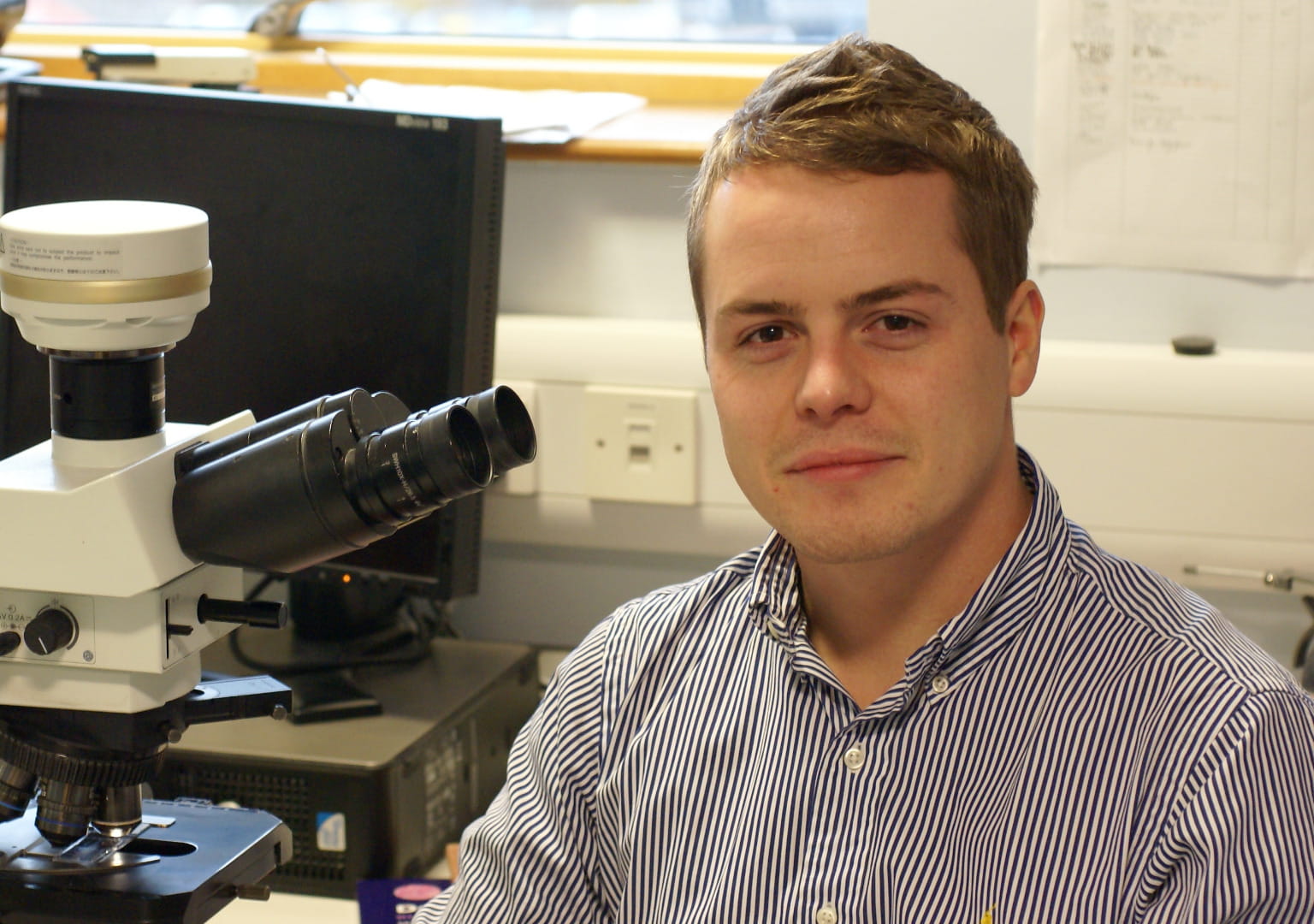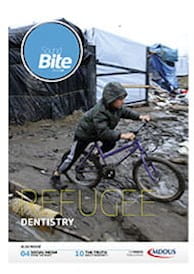IF YOU have a keen interest in academic study, want to know how and why diseases occur and like microscopy then the specialty of oral and maxillofacial pathology could be for you.
Specialists study the causes and effects of diseases of the mouth and jaws and their associated structures such as the salivary glands, ear, nose and throat. This largely takes the form of microscopic examination of biopsy and excision specimens and issuing a report with advice given on diagnosis and treatment.
It may be one of the smallest dental specialties in the UK (less than 30 oral pathologists currently practise in the UK), but this varied and challenging field has a lot to offer, from diagnostic histopathology to teaching, research and administration.
Entry and training
Those interested in undertaking oral and maxillofacial pathology (OMP) training should have completed one year of dental foundation training and at least one year of dental core training or equivalent in secondary care in an appropriate related specialty. You should also have the FDS, MFDS or MJDF of the UK surgical royal colleges by examination or an equivalent qualification. Those without FDS, MFDS or MJDF can still access OMP training but will usually be expected to have an appropriate higher degree and/or appropriate experience in OMP or a related discipline.
Satisfactory completion of the histopathology curriculum usually takes five years, according to the Royal College of Pathologists. At least one year is spent in general pathology studying other body systems including the gastrointestinal tract, lungs, soft tissues and haematology, and the remaining four years is spent studying oral and maxillofacial pathology. The award of a certificate of completion of specialist training (CCST) in OMP will be awarded after completion of: the OMP curriculum; a number of workplacebased assessments; the two-part fellowship examination of the Royal College of Pathologists (FRCPath in oral and maxillofacial pathology); and acquisition of annual review of competence progression (ARCP) outcome six. Relevant research work undertaken after entering the training programme may also count towards the CCST.
Clinicians then apply to be registered as a specialist with the General Dental Council. Despite the overlap between dentistry and medicine, a medical qualification is not required to practise as an oral pathologist.
In addition to training within the specialty there are many other teaching/learning methods trainees can undertake, including supervised experiential learning; online and virtual microscopy; regional/national training courses; discussion with biomedical scientists; and attachment to specialist departments.
The job
According to the British Society for Oral and Maxillofacial Pathology (BSOMP), oral pathologists “like to get things right”. They are academically strong, possibly with an interest in research, and have excellent organisational and communication skills.
The Society says: “You probably did well in dental school at pathology, human disease, oral medicine or oral surgery and you enjoy the detective work of making diagnoses.
“You would accept a challenge and be ready to take on responsibility – patients may have major surgery on the basis of your opinion. You would have gained clinical experience in subjects relevant to the work of a pathologist, particularly oral surgery or oral medicine.”
Most oral pathologists do not regularly see patients but are often asked to consult on individual patients to assist with diagnostic problems. Specialists are largely based in dental schools, in their associated dental hospitals or acute medical NHS Trust hospitals. Their work is commonly composed of four elements: diagnostic histopathology, teaching, research and administration. The Society describes diagnostic pathology as involving the diagnosis of disease by microscopic examination of biopsy and excision specimens and examination of resection specimens from cases of head and neck cancer. Depending on work schedules, this can occupy anywhere from half to nearly all of a pathologist’s time.
But the role does extend beyond “looking down a microscope”. The BSOMP says: “The pathologist also dissects surgical specimens, provides advice on diagnosis and treatment and participates in clinico-pathological case conferences and multidisciplinary team meetings (MDTs). Most oral pathologists are also involved in management and organisation of service laboratories and some are involved in NHS hospital management.”
Oral pathologists often take on a teaching role, usually in dental schools, delivering courses in basic science, pathology, microbiology, human disease, oral medicine and pathology, radiology or surgery depending on their experience and skills. These subjects are described as being “among the more academic and complex in the dental course” and teaching students how to understand disease and develop their diagnostic skills can be both a rewarding part of the job and a way of keeping in touch with dentistry.
Many pursuing OMP are interested in making research a key part of their role. For this you would require a PhD and continuing research interest. Suggested topics might cover oral pathology, pathology in general or a basic science subject. Some also choose to pursue other interests such as education research or forensic odontology, while others follow a management career path. A small number of oral pathologists have full-time NHS contracts but this would likely still involve attachment to a dental school and teaching/ research duties.
The specialty offers good opportunities for flexible training and part-time working with paid study leave and opportunities to travel. Its diverse nature promises “considerable job satisfaction” and “you don’t have to get up in the middle of the night like surgeons do”.
Sources
• The British Society for Oral and Maxillofacial Pathology - www.bsomp.org.uk
• Curriculum for Specialist Training in Oral and Maxillofacial Pathology – tinyurl.com/z4zp86c
Joanne Curran is an associate editor of SoundBite
 Q&A Daniel Brierley, specialist registrar in oral and maxillofacial pathology
Q&A Daniel Brierley, specialist registrar in oral and maxillofacial pathology
What attracted you to a career in oral and maxillofacial pathology?
Being strong at pathology at dental school I knew my strengths would be best placed in an academic specialty. I liked the idea that my diagnosis could ultimately affect the treatment a patient could receive. This is a big responsibility but also a valuable and rewarding role to have in patient care. I also knew there would be great opportunities to pursue teaching and research so my day would never become boring.
What do you enjoy most about the specialty?
It is very satisfying to nail a difficult diagnosis. There are hundreds of tumours that can affect the head and neck and sometimes they can look very similar under the microscope. Since I started training, lots of new tumours have been discovered and the ever-evolving list of translocations has kept me on my toes.
What do you find most challenging?
It never feels good when you accidently miss something. Luckily, I am still in training so any mistakes I make can be picked up by the overseeing consultant. And that’s the thing about pathology – you have to be meticulous in your approach and consider asking for more clinical information or radiology when you need it.
Have you been surprised by any aspect of the job?
I surprised myself with just how much I enjoy my job. My friends sometimes moan about being in practice or the specialty they have chosen to pursue, but every day I come home and feel grateful to be doing something I am passionate about.
What personal attributes do you feel are important in oral and maxillofacial pathology?
I think you need to be academically strong and willing to put the hours in with the books. But you also have to have a good “eye”. It’s difficult to describe what this is, but it’s about picking up on the detail while keeping the bigger picture in mind. Although this can be taught to a degree, those with a natural flair for it will find things a lot easier.
What advice would you give to a student or trainee considering the specialty?
Go and speak with a registrar or consultant and find out more. We are a friendly bunch of people and are always happy to offer advice and support to those who would like to know more about what we do. There are also fantastic dental core training (DCT) jobs in oral and maxillofacial pathology that will give you the exposure to the specialty you need to determine if it’s really for you. I did one of these DCT posts and I’m so glad I did.
This page was correct at the time of publication. Any guidance is intended as general guidance for members only. If you are a member and need specific advice relating to your own circumstances, please contact one of our advisers.
Read more from this issue of Insight Primary

Save this article
Save this article to a list of favourite articles which members can access in their account.
Save to library